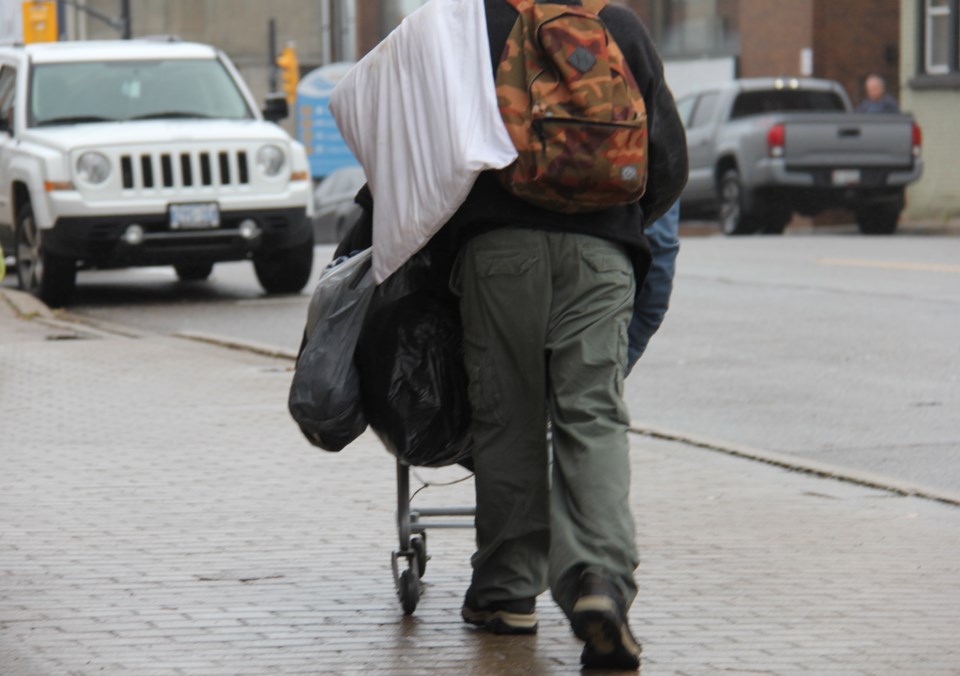North Bay City Councillors George Maroosis and Mark King are teaming up to table a motion supporting a rent arrears program aimed at preventing widespread evictions and homelessness in North Bay.
If passed, the resolution will be forwarded to representatives of the federal and provincial governments to lobby for financing for the local program and to "avert an additional major homelessness crisis."
King, who also serves as Chair of the District of Nipissing Social Services Administration Board (DNSSAB) admits he is familiar with the difficult task ahead in curbing a spike in homelessness in the wake of the lifting of a freeze on evictions related to the COVID-19 pandemic.
DNSSAB knows "there is a substantial problem that has developed with rent arrears," confirms King. "We're extremely concerned about that."
The motion will be discussed and voted on during Tuesday's regular meeting and seeks fresh funding streams for the rent arrears program proposed to DNSSAB in late March by Lana Mitchell, Executive Director of Low Income People Involvement of Nipissing (LIPI) and Tricia Marshall, President of the Near North Landlords Association (NNLA).
Maroosis also has a long history of involvement with DNSSAB and LIPI.
Findings from a recent LIPI survey show 10 per cent of households in the private rental market are at imminent risk of homelessness. The average arrears for rent is $4,200 plus hundreds more in utilities — with some reporting being up to $15,000 behind.
"The board accepted the report from that group and is certainly very concerned about the impact if there were large numbers of people pushed out into the street," adds King.
What hasn't been made clear so far is how much DNSSAB will allocate to the program. Funding recommendations come from the Community Advisory Board (CAB), made up of representatives from various agencies and organizations. Issues related to homelessness have dominated the board's recent funding decisions.
Marshall and Mitchell have been patiently awaiting a funding decision from DNSSAB to get the time-sensitive rent arrears program up and running.
Marshall notes DNSSAB allocated almost $2.2 million to emergency shelter solutions, nearly 80 per cent of the recent $2.6 million in provincial social services relief funding received and wonders if DNSSAB’s allocations indicate its priorities are with people who have already been evicted for non-payment of rent — rather than preventing homelessness.
The situation is so dire, says Marshall, even if all of that $2.6 million in government funding had been allocated to a rent bank with the landlords' contributions written off, there still would not be enough funding. NNLA estimates more than $4.4 million is required to maintain people in their homes in Nipissing.
See related: Robertson urges support from DNSSAB and municipalities for campaign to end homelessness by 2030
King says the CAB has decided the "number one issue in the community right now is the homeless situation. Following that is the rent bank."
"Their request was for just over $500,000 in funding to be reverted back to LIPI and the Near North Landlords Association," says King.
The NNLA surveyed its members and found that 11.7 per cent or 492 people are facing eviction due to rent arrears. Applying this percentage as a conservative baseline across the total number of units in all the private rental housing stock across Nipissing District, it is estimated that 600 units are in arrears with the possibility that up to 1,100 people are at imminent risk of eviction. This does not take into account unreported secondary suites and illegal apartments so the number of at-risk tenants is likely much higher.
A negotiated repayment plan would see the tenant pay one-third of the amount owing over time, the landlords forgive one-third of the rent arrears, and DNSSAB would fund one-third. Program eligibility will also include ongoing monitoring of the landlord and tenant relationship to ensure housing is retained.
"We'll have a contract with the landlord, with the tenant, with LIPI. A third of the rent arrears will be funded by landlords willing to write that off until they get some assistance," from government programs Mitchell shared during the presentation in March.
"There needs to be joint ownership," she added then. "Landlords are contributing. Tenants have to make contributions, too. We know that some people won't be in a financial position to do that. They can do it in other ways, with say, an earned grant. So, each month you pay your rent in full and on time, we'll forgive, say, $200 of what you owe in arrears."
